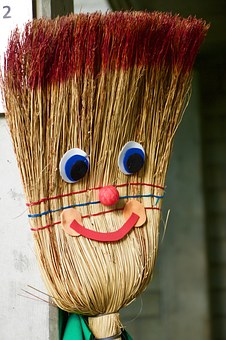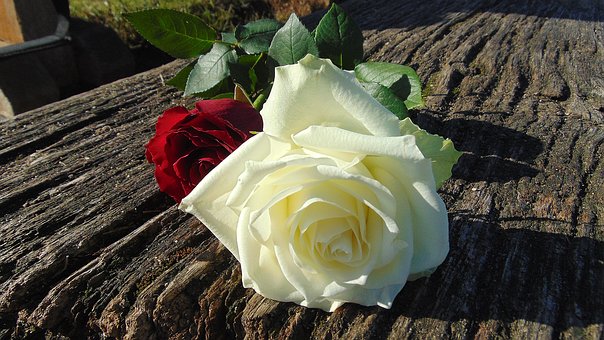All the World’s a Stage
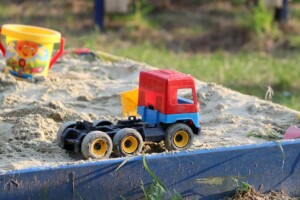 The outdoors is a stage
The outdoors is a stage
Our best stage in childhood was play. One of the best gifts our mama gave us was freedom of expression in creative play. Small wonder that folks who knew us often said, “You Miller girls are so creative and fun.”
Our stage played an important part in our process of development. We acted out scenarios familiar to us. Whether we imitated a teacher, a child, or an event, it allowed us to express our emotions without speaking to an adult about our feelings. In acting out the dramas unfolding in our lives, we released hidden emotions and learned, at times, to understand each other better.
I’m not sure if Mama planned to instill this creativity in us, or if she thought the stage would benefit in such ways.. Yet, what she allowed (and encouraged by her lack of restraints on us), provided the avenue we needed. She allowed us to play. She viewed any season and any place as a stage on which to play.
Every season was a wonder. Mama inhaled its beauty and made certain we saw it, too. Her appreciation made us pause in wonder and awe. She made us stop our play to smell the flowering current, see summer’s first rainbow, pause at the color of autumn leaves, and watch the first snowfall. Of that we could be sure. Nature provided us a stage!
Play fills empty hours
Yet, more than that, Mama allowed us to play. She became a businesswoman because our father was not living. Her business kept her in her bakery (attached to the house) and on her twice-a-week route to deliver bread to stores in the next county.
In her absence and her busyness, she allowed us to play. The more time we spent outside, the less mess there was in the house!
We fulfilled our responsibilities first (usually!) and then we played. There were six of us, and divvying up the work was easy. We figured out a point system for helping Mama on her route. Whoever had the least points “had” to go along on the route. Responsibilities included gardening, mowing, laundry, and housekeeping. I admit that with older half-sisters we were a bit spoiled.
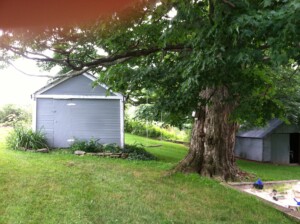
Learning by staging
We had a sandbox, one rope swing hanging from a tree, and a former chicken-coup-turned playhouse. In the playhouse, we staged different places of our life and our world. We played school, hospital, bakery, “Amish” (where we “churned” butter using an old churn filled with leaves). When we played “Amish”, we switched to Pennsylvania Dutch.
The field by the yard lent groceries for homemaking: Queen Anna’s Lace for fried potatoes, daisies for eggs, milkweed for fish, and clover for strawberries. We shopped and brought our supplies back to our playhouse, where we pretended and acted out our world on our childhood stage.
Our sandbox became a bakery, a farmland, or a fairyland. We used Mama’s old bread pans, cupcake holders, and knives and forks we snarfed from the kitchen to make our cakes, pies, and bread from sand.
When our sandbox was a farmland, we divided the lots into farms, complete with houses, barns, and fields. Forks were excellent tools for cultivating, and small branches were “planted” in the sand to provide “shade”.
Sometimes the sandbox was a fairyland with drive-through tunnels to a castle. A stairway circling from its yard to the top took us hours to create. None of us remembers the password we needed to enter the castle fortress, but we know we had one!
In the woods near the house, we created a Pony Express station, complete with letters for mailing. We cut notches into trees to provide places for envelopes delivered by riders on “horses”.
Every season is a different stage
In summer, we made houses on the wash line in the yard. We created two-and three-room houses using old blankets and sheets. Sometimes we slept in those tents, listening to the katy-did and the katy-didn’t lull us to sleep.
During snowy winter days, we stretched the dining room table as far as the extra boards allowed. There, we built towns with shoeboxes for houses, paper cutouts from catalogs for people, and powdered detergent for snow. One winter, the “town” remained over a week because snow accumulation closed schools in our area.
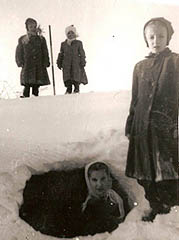
Some winter days we built igloos in the front yard and became Eskimos. We sledded down the tallest hill on the lane. There were never enough hours in our day to play!
I look back on my childhood and realize how blessed we were to be allowed – and encouraged – to create and play. While we fought like cats and dogs sometimes, at the end of most days, we remained friends. Mama stayed out of our squabbling and made us figure it out ourselves. In our play, we learned to navigate, take turns, and barter. We learned to get along and create. That is what play does for children.
The bloodline continues
When Dave and I had our half-dozen, I wanted my kids to have as much fun playing as we did. Dave was not as much a fan of their messes. His work in construction made him want to come home to a clean house. I enjoyed the tents and tunnels our kids created in the house or the towers they built, and he learned to appreciate their creativity.
They spent hours outside in the woods building their own bridges and erecting signs. One summer (with the help of cousins), they dammed up a creek using Dave’s PVC pipes so they could go swimming.
A neighbor boy told his mom, “It’s so much fun playing at the Slabach’s house. Those boys think of so many things to do.”
Happy children are those who learn to make their own entertainment, while bored children are most miserable. Children should never be bored because they can learn to make their own entertainment.
Our mama’s work was easier because we had no television, electronic games, or social media to occupy us. We had to find things to do. We learned early that complaining of boredom or staying underfoot promised work assigned by Mama.
Grief works itself out in play
Even in times of sorrow, Mama did not put restraints on us. My sister Rhoda remembers the fun she had playing with friends on a small footbridge, built when our father died. Because visitation was in our home, folks parked in the field next to the house. Rain flooded the ditch between the field and the yard, so a bridge was built to provide access from field to yard. Instead of forcing us to stay inside and visit with other mourners, we were allowed to play outside with our friends. Mama knew that playing with friends was more healing than sitting in the house with adults who came to express condolences.
Space equals creativity for any stage
Children don’t need an abundance of toys. They need space to create. One of the greatest gifts Mama gave us was the gift of play. I passed it on to my kids, and I am delighted they are passing it on to their children as well.
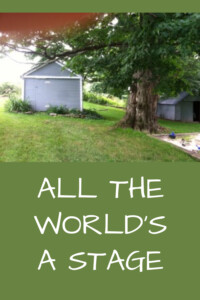
.


